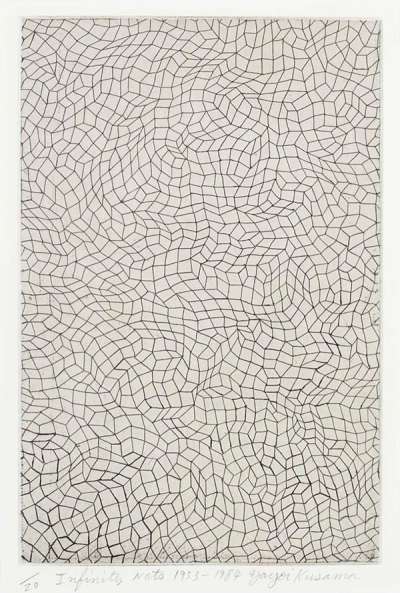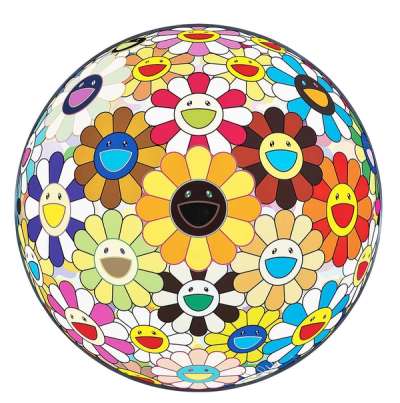 Middle Finger In Red © Ai Weiwei 2023
Middle Finger In Red © Ai Weiwei 2023Live TradingFloor
Amidst a vibrant collision of tradition and innovation, Generation Z is sculpting a fresh narrative within the Asian art market. With their digital nativity and progressive values, these young collectors are not just participants but pioneers, challenging the conventions of art collection and appreciation. This shift is a revolution in perspective, signalling a future where the art world is as boundless and diverse as the generation leading its charge. Through their preferences and investments, Gen Z is setting a new course for the art market, one that prioritises diversity, innovation, and a deeper, more accessible connection to art for all.
Gen Z's Rise in the Asian Art Market
In recent years, Generation Z has emerged as a formidable force within the Asian art market, heralding a period of transformative change and diversification. Born into the digital age, this demographic, encompassing individuals aged 12 to 27, wields considerable influence over market trends, driven by their distinct values, digital savviness, and global outlook. Their ascension marks a pivotal shift away from traditional collector demographics, predominantly characterised by more seasoned connoisseurs, towards a younger, more dynamic cohort that champions both innovation and tradition in art.
The Asian art market, historically rooted in centuries-old traditions, is now at the cusp of a renaissance, invigorated by Gen Z’s appetite for contemporary expressions and digital formats alongside classical forms. This generation's unique blend of cultural appreciation, technological proficiency, and social consciousness has not only expanded the market's boundaries but also redefined the criteria for value and collectibility in art.
Why Gen Z is Drawn to the Asian Art Market
The allure of the Asian art spectrum for Generation Z lies in its rich diversity and the ability to mirror the generational values of inclusivity, innovation, and authenticity. This cohort gravitates towards art that transcends traditional boundaries and embraces a multitude of expressions, from ancient techniques to contemporary digital forms. The broad spectrum of Asian art, encompassing everything from classical paintings and sculptures to avant-garde installations and digital art, offers something for every taste and interest, aligning with Gen Z's appetite for variety and personal expression.
This generation's preference for the Asian art spectrum is also fueled by its desire for deeper, more meaningful connections to culture and history. Asian art, with its deep roots and storied past, provides rich stories and perspectives that resonate with Gen Z's demand for authenticity and understanding of diverse cultures. The integration of technology in contemporary Asian art speaks directly to this tech-savvy generation, offering new ways to engage with and appreciate art through virtual galleries, augmented reality experiences, and blockchain-based collectibles like NFTs.
How K-Pop Stars Shape the Art Market
Celebrities, particularly those from the K-Pop industry, wield an extraordinary influence on art collecting trends, extending their impact far beyond their musical achievements. These icons, followed by millions globally, have a unique ability to dictate aesthetic preferences and investment interests among their vast fan bases. Their engagement with the art world – be it through showcasing personal art collections, collaborating with artists, or expressing their artistic tastes on social media – translates into a powerful endorsement that can instantly elevate artists' visibility and desirability.
This effect is particularly pronounced among Gen Z, a demographic that closely identifies with the personas and preferences of these celebrities. When K-Pop stars reveal their art acquisitions, they often highlight emerging talents or unconventional works, thereby promoting a broader appreciation for diversity and innovation in art. Such endorsements not only spotlight specific artists and genres but also inspire a new generation of collectors, encouraging them to explore the art market with a fresh perspective.
RM, the leader of the globally celebrated K-Pop group BTS, has developed a deep passion for contemporary art, actively engaging as a collector and advocate. Recently, RM made an appearance on Intersections: The Art Basel Podcast alongside his bandmates to share some of their favourite artworks in collaboration with Google. Included in RM’s collection are works by KAWS and Takashi Murakaami, highlighting his eclectic taste and the influential role he plays in bridging the worlds of contemporary music and art.
Gen Z Print Collectors: The Surge in Popularity of Prints
Generation Z has quickly become a notable force within the art world. Reports from Art Basel indicate that in the first half of 2022, the TikTok savvy collectors dedicated more than 30% of their net worth to purchasing art—a trend expected to persist and even grow.
Additional insights from Art Basel's report is that 72% of these youthful collectors prefer to acquire art through digital platforms, indicating a strong tilt towards modern purchasing methods. Interestingly, unlike their predecessors, Gen Z's art acquisitions do not primarily focus on well-established, blue-chip artists and traditional works on canvas. Instead, they exhibit a pronounced interest in prints. This shift is underscored by data from leading auction houses like Sotheby’s, Phillips, and Christie’s, which reported that Asian clients, encompassing both long-standing family collectors and newly affluent individuals, contributed to approximately one-third of their worldwide sales in 2020. This emerging group of art enthusiasts, equipped with considerable financial resources, is redefining market trends, particularly their growing fascination with prints.
Shaping the Future: Gen Z's Legacy in the Asian Art Market
As Generation Z continues to carve its niche within the Asian art market, their influence heralds a dynamic era of inclusivity, innovation, and digital integration. Their embrace of digital platforms for art acquisition and their penchant for prints and contemporary works reflect a broader move towards democratisation in the art market. This digital-first approach not only broadens the scope of who can participate in art collecting but also how art is experienced, shared, and valued across global communities.
Gen Z's deep-seated values of social consciousness and environmental awareness are likely to continue influencing the types of art that gain prominence and the practices of artists and galleries alike. As this generation grows in economic strength and cultural influence, their preferences will increasingly dictate market directions, spotlighting artists and works that resonate with their ideals. Through their actions and choices, Gen Z is ensuring that the future of art is vibrant, diverse, and reflective of a world that values every voice and every vision.























